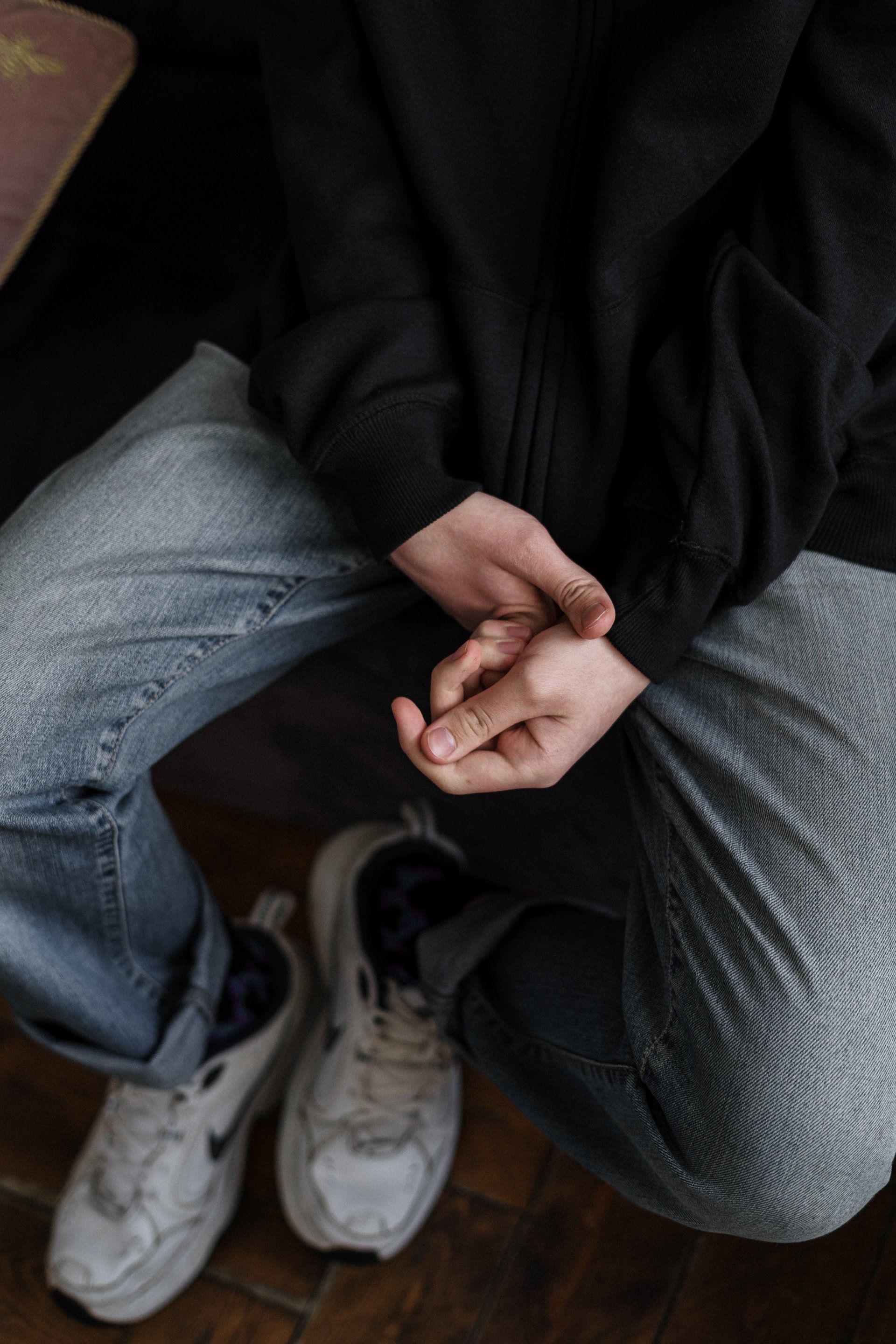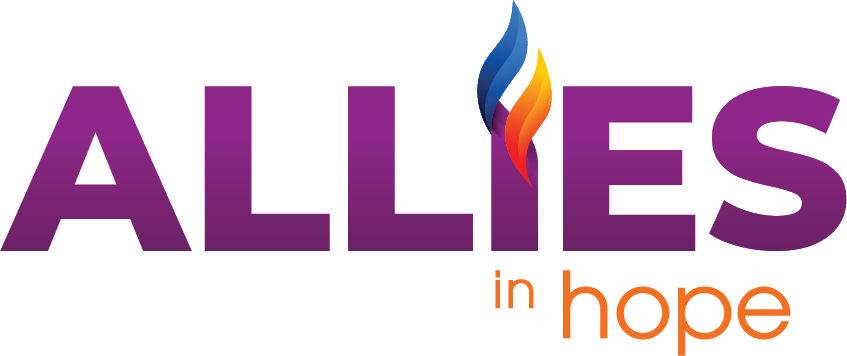Where to Start
Today, the primary way in which HIV is transmitted is via sex. If you feel like you may be at risk of exposure, there are a few different ways to get tested immediately with Allies in Hope. We offer in office rapid testing or test kits that are delivered to the home. Here are some of the risk factors.
HIV can be transmitted through:
- Blood
- Semen
- Pre-seminal fluid (pre-cum)
- Breast milk
- Vaginal fluids
- Rectal (anal) mucous
HIV is transmitted through body fluids by:
- Sexual contact
- Pregnancy, childbirth, breastfeeding
- Injection drug use
- Occupational exposure i.e. health care workers coming in contact with bodily fluids containing HIV
- Blood transfusions
HIV/STI Testing
Allies in Hope is a community focused organization that offers a variety of ways to get tested for HIV/STI including In-office testing, at home testing and various testing opportunities in the community.
In-office Testing
From start to finish, our HIV/STI testing usually takes 15 minutes. We’ll conduct a brief risk assessment, get your signature and take a finger prick or oral swab. Getting results can take as little as 60 seconds. If a confirmation test is needed, we can conduct it on the spot. The confirmation may take up to one hour depending on your needs.
Free testing is available by appointment only.
Testing At Home
Allies in Hope offers a free self-administered, at-home HIV test.
- Your “Be Empowered to Self-Test” B.E.S.T Box will arrive with collection tools to collect specimens for the following tests: HIV, syphilis, gonorrhea , chlamydia and Hepatitis C.
- You administer the test at home with assistance from a healthcare professional via phone.
- You then package your specimens and send them to the lab in the prepaid package.
- If any of your tests are reactive, a member of the Allies in Hope team will contact you about linkage to care and treatment.
The B.E.S.T. Box is available for those who are 18 years old and older.
Testing in the Community
Allies in Hope operates a mobile health unit to deliver services directly to communities vulnerable to HIV. The state-of-the-art mobile health unit is vital to our commitment to reach those residing in the highest HIV prevalent locations and provide free HIV/STI testing, PrEP and sexual health education, linkage to Allies in Hope services and resources, referrals to partner agencies and a consistent presence throughout Downtown, Midtown, Montrose, Greater Third Ward, and other communities.
HIV/STI Treatment
Along with free HIV/STI testing, we offer free HIV/STI treatment including offering START Now/Rapid Start treatment for HIV.
START (Strategic, Targeted, Anti-Retroviral Treatment)
Now is designed to get individuals recently diagnosed with HIV on Anti-Retroviral Treatment within seven days of their diagnosis. Additionally, this program assists persons with a previous HIV diagnosis that have been out of care for 12 or more months in getting relinked to treatment and services. Our overall goal is to connect individuals living with HIV to treatment to achieve viral suppression within 60 days of enrollment.
Here's How it Works
First, you register in the START Now program and begin anti-retroviral treatment at Allies in Hope. Next, the patient will receive a Service Linkage Case Manager who will refer them to a long-term HIV treatment provider and help them schedule an appointment within 30 days.
The START Now Linkage Care Coordinator will provide the following support to the patient for a minimum of one year:
- Join the patient in attending the first two medical appointments with the long-term HIV care provider.
- Help the patient understand lab reports with a specific focus on understanding viral load and viral suppression.
- Assist the patient in getting linked to supportive services including housing, medical transportation, mental health services, and food resources.
- After the first two medical appointments, meet with the patient a minimum of once per month to discuss successes and challenges related to treatment and other services that help promote healthy living.

HIV/STI Prevention
Allies in Hope offers several ways to access affordable HIV/STI prevention prescriptions.

PrEP and PrEP Prescriptions
PrEP (Pre-exposure prophylaxis) is a one pill a day or one injection every two months regimen that when followed, is up to 99% effective in keeping persons not living with HIV from acquiring the disease through sex. While PrEP does prevent HIV acquisition, it cannot prevent the acquisition of other sexually transmitted infections. That’s why medical professionals highly recommend that even when taking PrEP, you should continue the use of condoms.
Allies in Hope offers PrEP services at our brick-and-mortar location. We are also partnered with HeyMistr.com to make PrEP more accessible to men and women than ever before. You can talk to a doctor online, handle the lab work at home, and get your prescription delivered right to your door for free. An Allies in Hope clinician will follow-up with you with patient and prescription education. You will also be eligible to receive any STI treatments needed at our Midtown location. For more information, call 832-234-7737.
nPEP for HIV prevention
nPEP (non-occupational post exposure prophylaxis) is an HIV prevention method that is used for persons who had a potential exposure to HIV. The prevention treatment regimen must be started within 72 hours of potential exposure and followed for 28 consecutive days.
Living With HIV
Ensuring individuals living with HIV have access to adequate health care and corresponding financial assistance resources is critical to effective treatment. Understanding health care can be difficult, so we’re proud to offer our clients navigational support within the health care system.
Our case management approach is a client-centered, goal-oriented process for assessing the need of an individual for particular services and assisting the individual to obtain those services often across agency boundaries.


Counseling
Individual Counseling
In this one-on-one setting, clients are given the opportunity to confidentially talk through their most pressing problems and situations. Together, we create a personalized program that empowers them to live a better and healthier life. Allies in Hope helps identify the nature of the problems clients are dealing with and assist clients in finding the solutions best suited to their needs.
Family Counseling
These sessions are designed to help with issues that specifically affect the mental health and functioning of a familial unit. The goal is to help individual family members build stronger relationships, improve communication, and manage conflicts. We also aim to guide our clients to create a better home environment, solve family issues, and understand the unique issues their family may be facing.
Faith-Based Supportive Counseling
Faith-Based Supportive Counseling offers valuable guidance for individuals influenced by religion and spirituality, helping those facing crises of faith and challenges related to family and relationships. Faith-based counselors understand the significance of religious texts and principles, using faith-derived values to foster healing and growth during difficult times. Their approach centers on leveraging religion and spirituality as powerful sources of strength and support.
Substance Misuse Counseling
Substance misuse education and dependency counseling are essential to successful recovery from addiction and help prevent substance misuse across age groups.
Allies in Hope offers substance misuse education and dependency counseling for individuals, groups, and families.
Services include the prevention and intervention foundation, support work, and direct chemical dependency counseling to individuals with a history of current or recent, as well as past, misuse of substances and/or alcohol. The goal is to use appropriate and evidence-based models to support individuals in maintaining a healthier life.

Frequently Asked Questions
-
What is HIV?
HIV stands for human immunodeficiency virus, meaning a virus that attacks the immune system. HIV attacks key parts of your immune system: your T cells or CD4 cells. Your body needs T cells and CD4 cells to fight infections and disease, but HIV invades them, uses them to make more copies of itself, then destroys them. Over time, HIV can destroy so many of your CD4 cells that your body becomes incapable of fighting disease and infection. HIV then progresses into AIDS.
AIDS (acquired immunodeficiency syndrome) is the final stage of HIV infection. People at this stage of HIV disease have badly damaged immune systems, putting them at risk for opportunistic infections (OIs). You will be diagnosed with AIDS if you have one or more OI, certain cancers, or a very low number of CD4 cells.
-
How do you get HIV?
HIV can be transmitted through any one of the following fluids:
• Blood
• Semen
• Pre-seminal fluid (pre-cum)
• Breast milk
• Vaginal fluids
• Rectal (anal) mucous
HIV is transmitted through body fluids in very specific ways:
• Sexual contact
• Pregnancy, childbirth, breastfeeding
• Injection drug use
• Occupational exposure, in other words. health care workers coming in contact with bodily fluids containing HIV
• Blood transfusions
• Organ transplants
-
How can I protect myself?
One way HIV can be spread is through unprotected sexual contact with an HIV-positive person. Some of the ways to reduce your risk of getting HIV through sexual contact include:
Get tested and know your partner's status. Talking about your HIV status can be difficult or uncomfortable - but it's important to start the discussion BEFORE you have sex.
Use Pre-Exposure Prophylaxis (PrEP) is a one-pill-a-day medical intervention that prevents transmission of the virus more than 99% of the time when taken as prescribed.
Use condoms consistently and correctly. Both male and female condoms will help protect you against HIV and other STIs.
The best protection for those who are sexually active is to use both PrEP and condoms simultaneously.
If you believe you have been exposed to HIV, see a doctor within 72 hours (the sooner the better) to start on Post-Exposure Prophylaxis (PEP) medication, which may help prevent the virus from taking hold.
HIV can also be spread through the use of needles during substance misuse.
-
How can I protect myself from HIV with medication?
PrEP, or pre-exposure prophylaxis, is a drug that prevents HIV from taking hold in your body. PrEP can be prescribed in both oral and injectable forms.
PrEP is not a cure or a vaccine for HIV. But when taken correctly, it helps protect you from acquiring HIV.
PrEP does not protect you from getting other STDs like syphilis, gonorrhea, or herpes. PrEP is not a replacement for condoms. PrEP is designed to work with condoms.
Unprotected anal, oral, and vaginal sex puts you at risk for HIV and other STIs. PrEP is effective at preventing you from getting HIV when it is combined with condoms for anal, oral, and vaginal sex.
PrEP cannot give you HIV. There is no virus in the medication.

